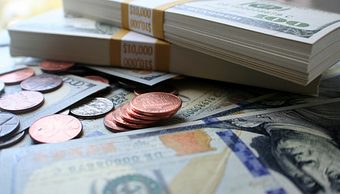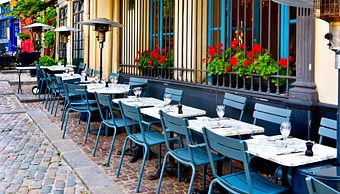the Restaurateur
Buying a Restaurant? Here’s Your Checklist
July 28, 2017Interested in purchasing a restaurant? It could be a profitable venture—but you have to do your research first...you don’t want to be “buying” the previous restaurant’s problems.
Looking to purchase a restaurant and aren’t really sure where to begin? While you may have found the seemingly perfect location, building and business idea—take time to be sure the benefits outweigh the risks.
The most important question you need to tackle
Why is the existing restaurant selling? Are you getting yourself into trouble with the location or building? Does it make sense for you to own it or are you simply buying the past restaurant’s problem?
While it is a gratifying business, it is a very difficult one to operate. Before significant money is invested, realize that successfully operating such a business requires very long hours and a lot of careful analysis of the market. A lot of restaurants fail within three years of starting up (true in almost every market!) Realize the high risk involved.
Basic facts you should know about the restaurant you want to buy:
- Lease arrangements and options (get a copy of the lease!)
- Any outstanding or past litigation (including workers comp claims & problems)
- Is there a transferable liquor license?
- Vendor and employee information
- Information on the neighborhood- Vandalism? Crime? Zoning changes? Any construction? Key competitors in the area?
- How accounting information is handled (three years past tax returns and financial statements) and the ownership structure of the business.
- Health department issues, if any
- Check Yelp and other online review sites to see what kind of reputation the place has
Checklist once you’re ready to purchase
After you have deliberated these important details, here is a checklist for what you need to have and complete before closing in on a purchase:
- Non-disclosure and confidentiality agreement- These protect the prospective buyer from having anyone such as an employer, employees, or the competition discover about the proposed purchase before it’s final.
- Financial documentation- Usually banks will not approve loans for restaurants unless there is solid financial documentation and at least three years of tax returns.
- Tax Letter of Good Standing- This is important to have when there is a liquor license involved. If there are unpaid tax liabilities, the state could withhold your liquor license! This could delay your opening, which could be financially devastating.
- Face to face meeting- You should arrange a face to face meeting with the seller to explore the restaurant in person, learn operating procedures etc. etc.
- Execute purchase agreement- After touring the restaurant and meeting the current owner, it’s time to make an offer. Once the selling price and favorable terms have been agreed on, you can now execute a purchase agreement with the buyer and place a good faith deposit into escrow (in other words, a bond, deed or other document kept in the custody of a third party, taking effect only when a specified condition is fulfilled).
- Make the good faith deposit- This is also called “earnest money” and is a required deposit that must be made at the time you sign the purchase agreement.
- Close.- It typically takes 45 to 60 days to close the restaurant sale after you’ve completed the above steps. There is usually a final meeting so that the buyer and seller can exchange the restaurant business and money. Provided the close is successful, the good faith deposit will then be released from escrow.
While the idea of purchasing a restaurant is often romanticized, it is actually a complicated process that takes a lot of deliberation. Fulfilling a lifelong dream of owning a restaurant is admirable, but you don’t want to end up burdened with expenses. If you are interested in purchasing a restaurant but aren’t really sure where to begin, reach out to one of our Hospitality Services Team members.



